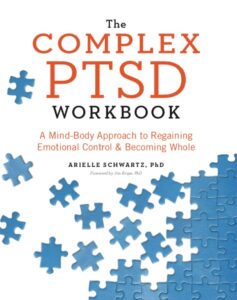
Empathy is a key element of the work that I do. As a psychotherapist, I am literally trained to not only listen to another but to sense and feel their experience with them. In truth I’ve been this way my whole life—empathy is one of those traits that goes along with being a highly sensitive person.
My sensitivity also defined much of my childhood. You see, when I was growing up I felt everything. If there was an emotion in the room I was sure to pick up on it. Often the emotions would build up in me and then I would start to feel anxious or overwhelmed or sad for “no reason.” It was easier when emotions were named by others. If someone was able to say “I’m sad” or “I’m angry” then I didn’t take it on. But, it was a lot harder with other peoples “unexpressed” or “suppressed” emotions. You know what I mean…when someone has an angry tone of voice and expression on their face but denies it and says, “I’m fine!” This is where things got really confusing!
As a child, empathy was automatic and not something that I had choice about…it was like a faucet left on full stream; I never knew that I could turn it down or off! As a result, there were times when I carried around a whole lot of emotional or psychic material. This could get pretty heavy. Sometimes I’d have big emotional meltdowns and not know why (those were embarrassing). Other times I’d get sick because all of these feelings left my body drained…
Now, as an adult I’ve learned to have a new conversation with my empathic self—actually a conversation with my young self. I’ve let myself know that I don’t have to carry the weight of the world, that it is okay to “let go,” and that it doesn’t really serve me to hold on anymore.
At times, I’ve had some interesting (and informative) replies back from my young self. She has said, “I don’t want to feel anything at all because when I do it’s just too much” or she has said “but if don’t take care of (feel) them I’ll be all alone!” I recognize that as a child, feeling for others was a way of connecting…and that sometimes it was too much.
As an adult, I can now choose when and how much to sense and feel. I also give myself permission not to feel sometimes. I can honor my need to connect to others without having to take it all in. I get to have and honor my own boundaries. My empathy is no longer a faucet stuck on and I don’t have to turn off my gift.
Yes, there are still some days where I can sense that I am carrying the story or process of another person. In these times, I rely upon somatic tools of breath, movement, or yoga. I also rely upon an intention to give away what I am carrying. I give it over to something larger than myself—the earth, the universe, spirit, God.
I give it away so that I can simply be me.
Through the end of December 2018, you can order the EMDR Therapy and Somatic Psychology book directly from W. W. Norton at a 20% discount with free shipping. The coupon code is EMDRSP18 — Click here to order.

The Complex PTSD Workbook, now available on Amazon! Click here to check it out and increase your toolbox for healing. Whether you are a client or a therapist this book will offer a guided approach to trauma recovery.
Dr. Arielle Schwartz is a licensed clinical psychologist, wife, and mother in Boulder, CO. She offers trainings for therapists, maintains a private practice, and has passions for the outdoors, yoga, and writing. Dr. Schwartz is the author of The Complex PTSD Workbook: A Mind-Body Approach to Regaining Emotional Control and Becoming Whole (Althea press, 2016) and co-author of EMDR Therapy and Somatic Psychology: Interventions to Enhance Embodiment in Trauma Treatment (Norton, 2018). She is the developer of Resilience-Informed Therapy which applies research on trauma recovery to form a strength-based, trauma treatment model that includes Eye Movement Desensitization and Reprocessing (EMDR), somatic (body-centered) psychology and time-tested relational psychotherapy. Like Dr. Arielle Schwartz on Facebook, follow her on Linkedin and sign up for email updates to stay up to date with all her posts.

Arielle Schwartz, PhD, is a psychologist, internationally sought-out teacher, yoga instructor, and leading voice in the healing of PTSD and complex trauma. She is the author of five books, including The Complex PTSD Workbook, EMDR Therapy and Somatic Psychology, and The Post Traumatic Growth Guidebook.
Dr. Schwartz is an accomplished teacher who guides therapists in the application of EMDR, somatic psychology, parts work therapy, and mindfulness-based interventions for the treatment of trauma and complex PTSD. She guides you through a personal journey of healing in her Sounds True audio program, Trauma Recovery.
She has a depth of understanding, passion, kindness, compassion, joy, and a succinct way of speaking about very complex topics. She is the founder of the Center for Resilience Informed Therapy in Boulder, Colorado where she maintains a private practice providing psychotherapy, supervision, and consultation. Dr. Schwartz believes that that the journey of trauma recovery is an awakening of the spiritual heart.
Beyond Trauma: A Guided Mind-Body Journey of Resilience, Hope and Post-Traumatic Growth